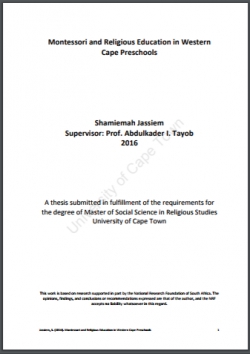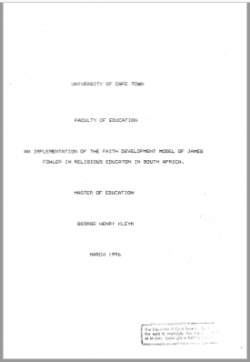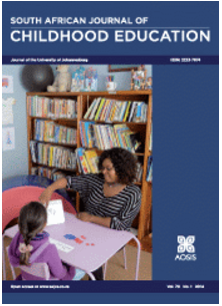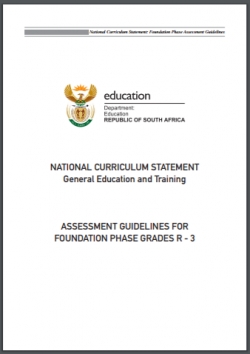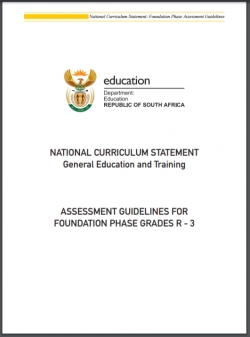Religious education as a multi-process curriculum
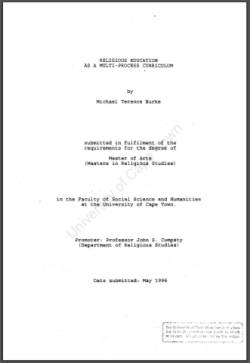
Type
Thesis
Authors
Category
ECCE, Foundation, Intermediate, Senior
[ Browse Items ]
Publication Year
1996
Publisher
URL
[ private ]
Pages
188 p.
Subject
Early childhood education, Primary education, Religious education, Curriculum, Catholic schools, Learning, South Africa
Tags
Abstract
Finding a satisfying approach to Religious Education is a problem even to schools with a specifically religious character; it is even more of a problem to multi-faith public schools. The root of the problem may lie in the monolithic way that 'religion' and 'religious education' are perceived. Everyone develops ways of making sense of life, however inadequate, and everyone possesses the same range of faculties for doing so. In a broad sense, this is religion - even if only some are conditioned to call it this - and any assistance given to awakening the faculties concerned is religious education - even if only some recognise it as such. Agnostics often possess highly developed faculties that in believers are seen as belonging to the fabric of their faith. In devising a programme of Religious Education for Catholic Schools, my starting point was to examine the range of faculties involved and how learning and growth happen in practice. It became apparent that just as a language is approached by many routes (such as learning to understand, speak, read, write, and appreciate it) so too a number of processes operate in parallel to produce the effect called Religious Education. The analysis crystallised fifteen distinct learning processes. Some are immediately recognisable as 'religious'; others are partly motivated and orientated by religion; still others are religious only in implicit ways. The analysis also revealed how each of the processes involve four dimensions of learning. Knowledge, deepened into understanding and flowering in insight, is the most widely acknowledged, followed by attitudes and practices. The best Religious Education also gives attention to skills, and recognises the key role of experience, including exposure, experimentation, exercise, and expression. The analysis further distinguished different levels at which learning takes place: each process can be facilitated both formally (by teaching) and informally (by example) , and for effectiveness the latter needs to be congruent with the former. The fifteen processes, with their various dimensions and levels, together constitute a rounded curriculum of Religious Education. The analysis has become known as CORD, an anagram (1) but also a metaphor for the intertwined process-strands. The thesis traces how the analysis was used first in the pilot programme designed for Catholic High Schools (2), and later as a natural basis for constructing courses for teachers and as an increasingly general
reference point.
reference point.
Description
Thesis (MA)--University of Cape Town, 1996
Number of Copies
1
| Library | Accession No | Call No | Copy No | Edition | Location | Availability |
|---|---|---|---|---|---|---|
| Main | 869 | 1 | Yes |
